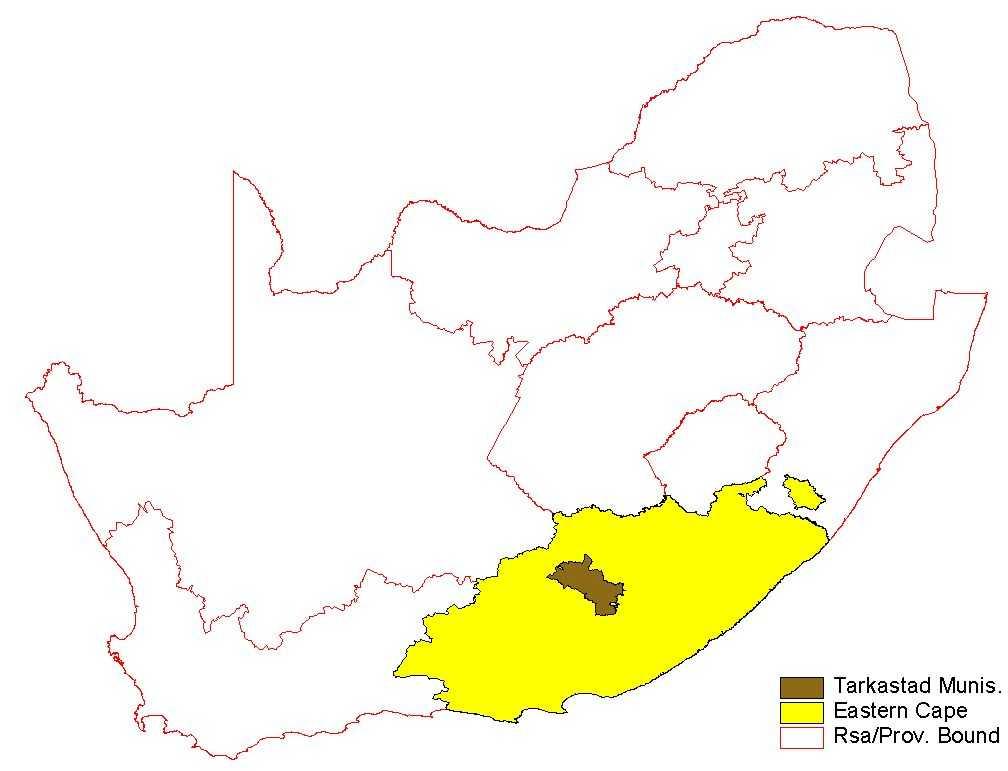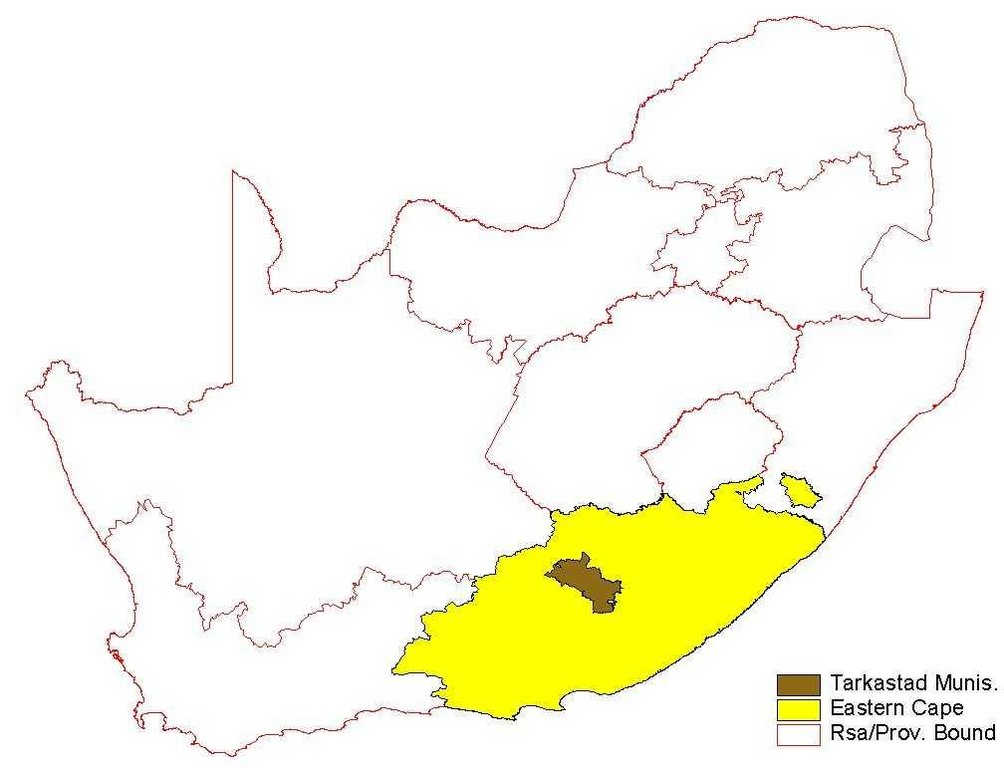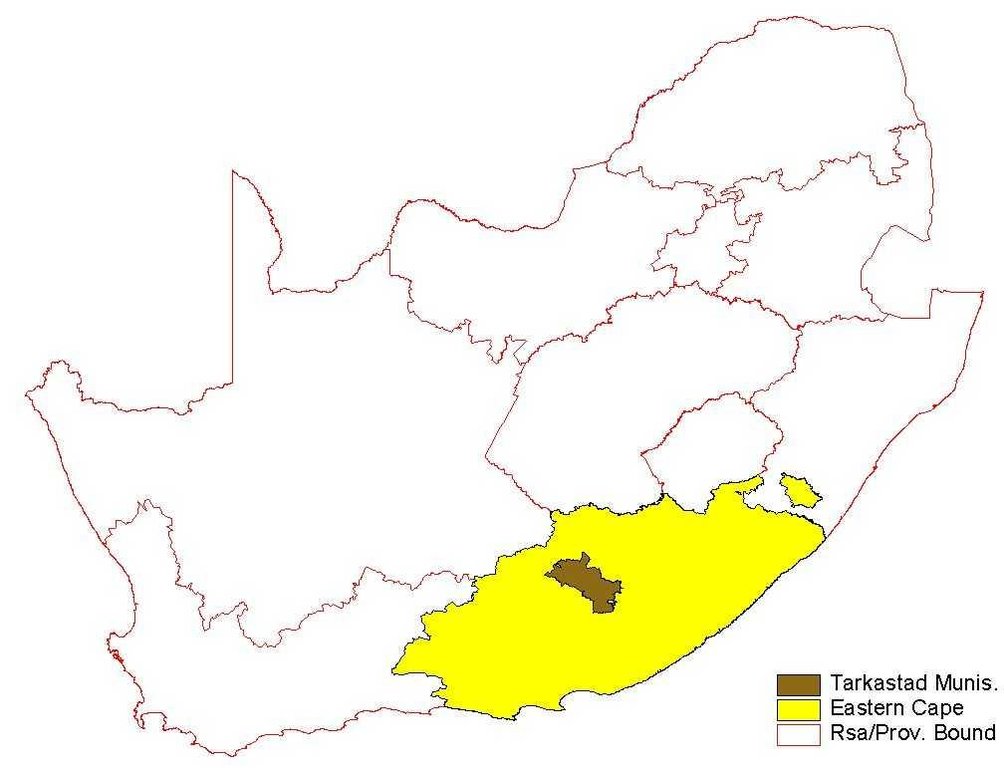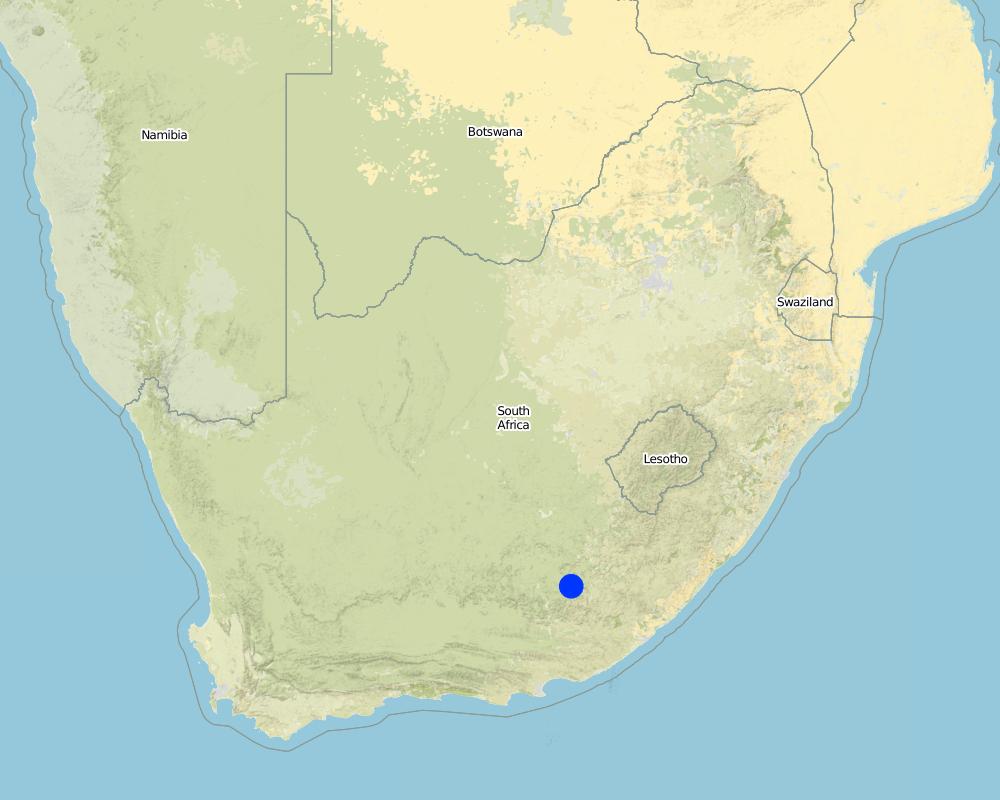Extension officer approached by Commercial farmers [South Africa]
- Creation:
- Update:
- Compiler: Philippe Zahner
- Editor: –
- Reviewer: Fabian Ottiger
approaches_2645 - South Africa
View sections
Expand all Collapse all1. General information
1.2 Contact details of resource persons and institutions involved in the assessment and documentation of the Approach
Name of the institution(s) which facilitated the documentation/ evaluation of the Approach (if relevant)
Swiss Agency for Development and Cooperation (DEZA / COSUDE / DDC / SDC) - Switzerland1.3 Conditions regarding the use of data documented through WOCAT
The compiler and key resource person(s) accept the conditions regarding the use of data documented through WOCAT:
Yes
2. Description of the SLM Approach
2.1 Short description of the Approach
Farmer approached extension officer (acquire free service) for technical advise & subsidy
2.2 Detailed description of the Approach
Detailed description of the Approach:
Aims / objectives: The farmer was faced with serious sheet erosion on his farm. The farmer had good results where there had been treatment of this problem on a small scale. Having grown up with parents who were keen soil conservationists it was his duty to do something about this serious problem. The farmer then approached the local extension officer for technical advice and also subsidy. Work of this volume is a long-term project and needs support in the form of subsidies as no farmer can afford these expenses, due to the low returns of livestock farming today and the lack of capital. As far back as 1960, ripping of sheet erosion was being done successfully without a subsidy. This was on a small scale, bit by bit each year as our finances dictated.
2.3 Photos of the Approach
2.5 Country/ region/ locations where the Approach has been applied
Country:
South Africa
Region/ State/ Province:
Eastern Cape
Map
×2.6 Dates of initiation and termination of the Approach
Indicate year of initiation:
1980
2.8 Main aims/ objectives of the Approach
The Approach focused on SLM only
To get subsidies to be able to do a good job of the ripping. We had seen from past experiences that shallow and inadequate ripping was a waste of money. Equipment would have to be bought or hired, however.
The SLM Approach addressed the following problems: Subsidy for ripping sheet erosion
2.9 Conditions enabling or hindering implementation of the Technology/ Technologies applied under the Approach
availability/ access to financial resources and services
- hindering
Capital and unable to pay interest rates asked by banks
Treatment through the SLM Approach:
3. Participation and roles of stakeholders involved
3.1 Stakeholders involved in the Approach and their roles
- local land users/ local communities
Working land users were mainly men (Owner & staff)
3.2 Involvement of local land users/ local communities in the different phases of the Approach
| Involvement of local land users/ local communities | Specify who was involved and describe activities | |
|---|---|---|
| initiation/ motivation | self-mobilization | own idea |
| planning | interactive | rapid/participatory rural appraisal; Farmer approached Department of Agriculture |
| implementation | self-mobilization | responsibility for major steps; Farmer approached Department of Agriculture |
| monitoring/ evaluation | interactive | Mainly: measurements/observations; partly: reporting; Farmer keep records on economics, extension officer wrote reports |
| Research | interactive | on-farm; Farmer informed extension officer about changes, results of measurements kept by extension officer |
3.4 Decision-making on the selection of SLM Technology/ Technologies
Specify who decided on the selection of the Technology/ Technologies to be implemented:
- land users alone (self-initiative)
Explain:
land user driven (bottom-up).
4. Technical support, capacity building, and knowledge management
4.1 Capacity building/ training
Was training provided to land users/ other stakeholders?
Yes
Subjects covered:
Farmer asked for support by the Department. The technology was a co-development of farmer and extension officer.
4.2 Advisory service
Do land users have access to an advisory service?
Yes
Specify whether advisory service is provided:
- on land users' fields
Describe/ comments:
Advisory service is quite adequate to ensure the continuation of land conservation activities; A lot of them have been visiting the place. Results and reports are available by the Department and there were also some scientists of a University who produced a database on SWC. (Potchefstroom).
4.4 Monitoring and evaluation
Is monitoring and evaluation part of the Approach?
Yes
Comments:
bio-physical aspects were ad hoc monitored through observations
technical aspects were ad hoc monitored through measurements
area treated aspects were regular monitored through observations
4.5 Research
Was research part of the Approach?
Yes
Specify topics:
- technology
Give further details and indicate who did the research:
Experiences on how deep to rip and what and when to sow.
5. Financing and external material support
5.1 Annual budget for the SLM component of the Approach
Comments (e.g. main sources of funding/ major donors):
Approach costs were met by the following donors: government (national - subsidy): 50.0%; other (farmer): 50.0%
5.2 Financial/ material support provided to land users
Did land users receive financial/ material support for implementing the Technology/ Technologies?
Yes
5.3 Subsidies for specific inputs (including labour)
- labour
| To which extent | Specify subsidies |
|---|---|
| partly financed |
- equipment
| Specify which inputs were subsidised | To which extent | Specify subsidies |
|---|---|---|
| machinery | partly financed | |
- agricultural
| Specify which inputs were subsidised | To which extent | Specify subsidies |
|---|---|---|
| seeds | partly financed | |
5.4 Credit
Was credit provided under the Approach for SLM activities?
Yes
Specify conditions (interest rate, payback, etc.):
repayment conditions: Subsidy.
Interest was lower than market rate.
Specify credit receivers:
Land ownership
6. Impact analysis and concluding statements
6.1 Impacts of the Approach
Did the Approach help land users to implement and maintain SLM Technologies?
- No
- Yes, little
- Yes, moderately
- Yes, greatly
New ideas (extension) for developing technology further.
6.3 Sustainability of Approach activities
Can the land users sustain what has been implemented through the Approach (without external support)?
- yes
6.4 Strengths/ advantages of the Approach
| Strengths/ advantages/ opportunities in the compiler’s or other key resource person’s view |
|---|
| Owner supported financially by government (How to sustain/ enhance this strength: Continue with subsidies) |
| Department open for new ideas |
| Extension officer very enthusiastic (How to sustain/ enhance this strength: Good partnership) |
7. References and links
7.1 Methods/ sources of information
- field visits, field surveys
- interviews with land users
Links and modules
Expand all Collapse allLinks
No links
Modules
No modules





